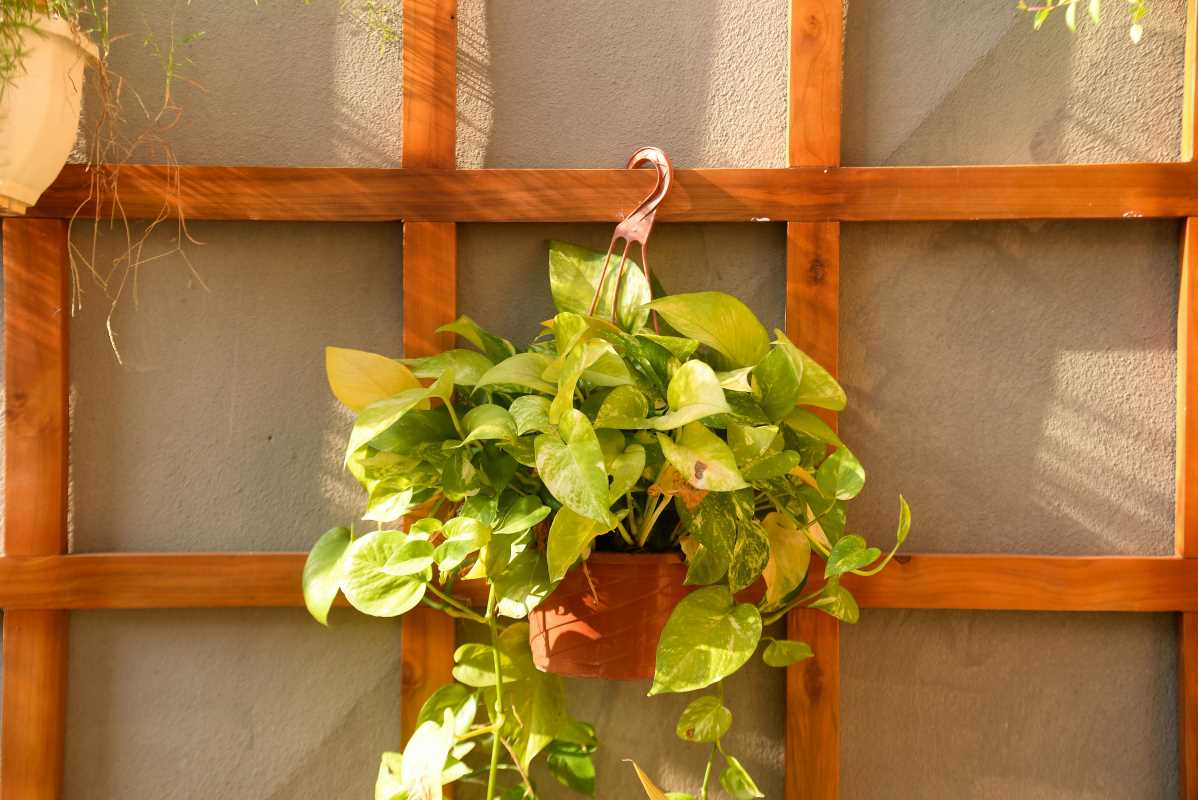Think about it – as you step out onto your balcony, you can pluck swaths of fresh herbs to flavor your food. Gardening on smaller scales with a custom herb garden in this way is both practical and rewarding. No matter how preoccupied you are with working day-to-evening, cultivating even small amounts of dried herbs will improve your cooking enormously.
Growing custom herb gardens on a small balcony is easier than you think. Whether you’re a seasoned gardener or just starting out, cultivating herbs will enhance your culinary creations and add a touch of greenery to your outdoor space.
Planning Your Herb Garden
Before planting, plan your herb garden carefully. Start by assessing the space available on your balcony. Measure the area to determine how many herbs you can comfortably accommodate without overcrowding. Also, consider the weight of the containers you’ll be using, especially if your balcony has weight restrictions.
Sunlight is another crucial factor. Most herbs require at least six hours of sunlight daily to thrive. Observe your balcony’s exposure throughout the day to identify the sunniest spots. If your balcony receives limited sunlight, use shade-tolerant herbs or grow lights to supplement natural light.
Selecting the Right Herbs for Your Balcony Garden
Basil
- Basil is a fragrant and flavorful herb that's a favorite in many kitchens, especially for Italian and Mediterranean dishes. It’s perfect for making fresh pesto, adding to pasta, or garnishing salads. Basil thrives in a sunny spot and requires about 6 to 8 hours of sunlight each day. Keep the soil consistently moist, but ensure it has good drainage to prevent waterlogging. Pinch off flowers as they appear to encourage the plant to produce more leaves. Basil grows well in medium-sized containers and flourishes during warmer months.
Mint
- Mint is a hardy herb with a refreshing aroma and taste. It is often used in teas, desserts, and garnishes for drinks like mojitos. However, it grows rapidly and can quickly become invasive if not contained, so a pot is the perfect way to manage its spread in a balcony garden. Mint prefers partial shade but can tolerate full sun in cooler climates. Water it regularly to keep the soil slightly moist, and you’ll have a continuous supply of vibrant leaves. Its resilience makes it ideal for beginner gardeners.
Thyme
- Thyme is a versatile herb with a subtle, earthy flavor that complements roasted vegetables, meat dishes, and sauces. This herb thrives in full sun and well-drained soil, making it perfect for a sunny balcony. Thyme is drought-tolerant, so it doesn’t require frequent watering—allow the top layer of soil to dry out between waterings. It grows well in smaller containers and is low-maintenance, making it a great choice for busy gardeners. Plus, its small flowers attract pollinators like bees, adding a touch of wildlife to your balcony.
Rosemary
- Rosemary is a robust herb with an intense, pine-like aroma and flavor, often used to season meats, potatoes, and bread. This evergreen herb loves full sun and dry conditions, so place its pot in the sunniest spot on your balcony and make sure the soil drains well. Rosemary doesn't need frequent watering; letting the soil dry out slightly between watering is best. Its woody stems make it a visually appealing plant, and it can even double as a small ornamental shrub in a balcony setup.
Parsley
- Parsley is a versatile and nutrient-packed herb often used as a garnish or an ingredient in soups, salads, and sauces. It’s an excellent source of vitamins A, C, and K, adding both health benefits and flavor to your dishes. Parsley prefers partial shade to full sunlight and moist, well-drained soil. Unlike some herbs, it can handle cooler temperatures, making it suitable for various climates. Regularly harvesting the outer leaves encourages new growth, ensuring a continuous supply.
Cilantro
- Cilantro, also known as coriander, is a flavorful herb commonly used in Mexican, Indian, and Asian cuisines. Popular for salsas, curries, and chutneys, cilantro offers a fresh, citrusy flavor. It grows best in cooler weather and partial shade, making it a great choice for spring or fall planting. Cilantro prefers well-drained soil that stays slightly moist. It has a quick lifecycle, so planting seeds every few weeks ensures a steady harvest. The plant also produces coriander seeds, offering a dual-use crop.
Chives
- Chives are slender, onion-flavored herbs that add a mild kick to soups, eggs, and salads. Their delicate purple flowers are pretty and edible, making them a lovely addition to your balcony garden. Chives prefer full sun but can tolerate a bit of shade, and they grow well in small containers. Keep the soil moist but not overly saturated. Regular trimming of the leaves promotes healthy growth, and because they’re perennials, chives will keep returning year after year if cared for properly.
With these versatile herbs in your balcony garden, you’ll have a fresh, flavorful supply of ingredients that are easy to grow, maintain, and incorporate into your cooking. Each choice is practical for small spaces and adds a touch of greenery and life to your home.
Setting Up Containers
The right containers can significantly improve the health and growth of your herbs. Various options are available, each with its own benefits. Consider using lightweight containers like plastic pots if you need to move your herbs frequently. Terracotta pots are excellent for breathability but can be heavy and may require careful handling.
Key container setup tips include:
- Ensure each container has adequate drainage holes to prevent waterlogging.
- Use high-quality potting soil designed for herbs to provide the necessary nutrients.
- Consider using self-watering containers to maintain consistent moisture levels.
- Arrange containers based on the sunlight needs of each herb, placing those that require more sun in the brightest spots.
Caring for Your Herbs
- Water regularly, but avoid overwatering. Allow the top inch of soil to dry out between watering sessions.
- Fertilize your herbs with an organic fertilizer every few weeks to promote healthy growth.
- Prune herbs frequently to encourage bushier growth and prevent them from becoming leggy.
- Monitor for pests and address any infestations promptly using natural remedies.
- Rotate containers periodically to ensure even light exposure for all sides of the plants.
Consistent care is essential for maintaining vibrant and productive herbs. Following these tips ensures your balcony garden remains lush and bountiful throughout the growing season.
Overcoming Challenges
Gardening on a small balcony presents challenges, but they are manageable with the right strategies. Limited space can make it tricky to provide adequate airflow, which is essential for preventing mold and mildew. To combat this, space your containers appropriately and consider using hanging or vertical planters to maximize space utilization.
Another common issue is temperature fluctuations. Balconies can become excessively hot in the summer and cold in the winter, affecting herb growth. To mitigate this, use shade cloths during the hottest months and bring containers indoors or use protective covers during colder periods.
You can overcome these challenges with thoughtful planning and attentive care and enjoy a thriving herb garden on your balcony.
Starting your own herb garden on a small balcony is gratifying. It brings fresh flavors to your kitchen and a touch of nature to your living space. By planning carefully, selecting the right herbs, setting up suitable containers, and maintaining diligent care, you can create a lush and productive garden tailored to your lifestyle. Don’t let limited space hold you back—embrace the joy of growing your own herbs and transform your balcony into a green sanctuary.
 (Image via
(Image via





